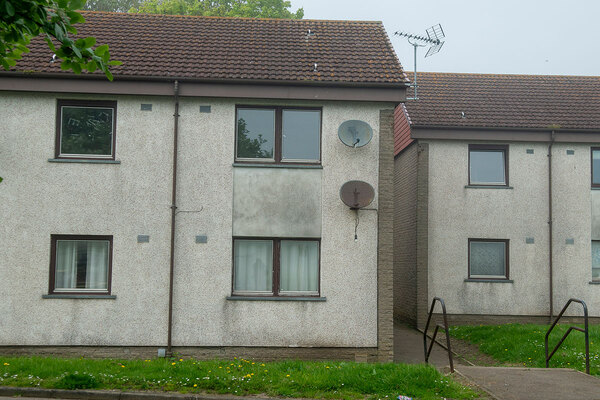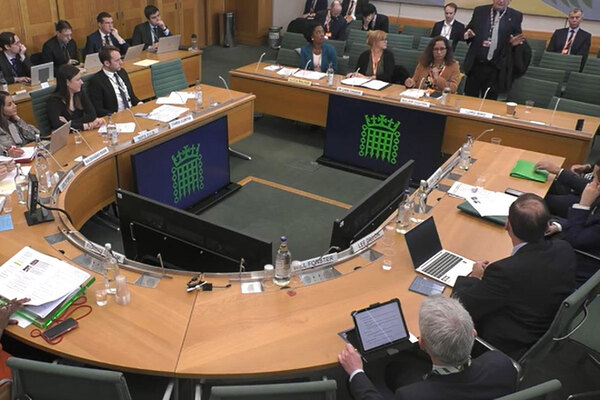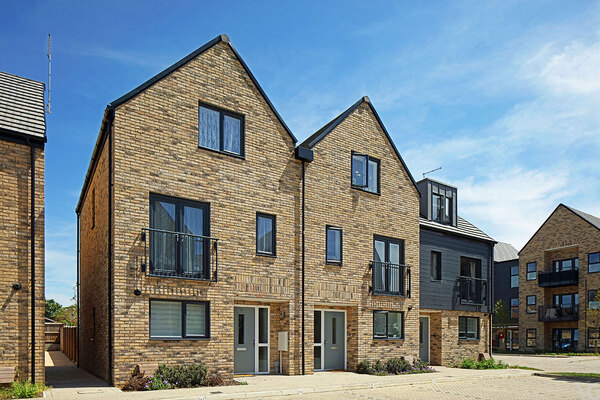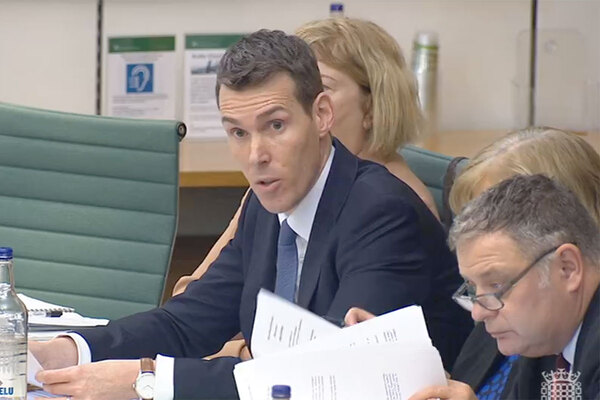You are viewing 1 of your 1 free articles
The Week in Housing: what will the new Affordable Homes Programme delivery target be?
The Week in Housing is our weekly newsletter, rounding up the most important headlines for housing professionals. Sign up below to get it direct to your inbox every Friday
Good afternoon.
The unlikeliness of the government hitting its target for its flagship Affordable Homes Programme (AHP) 2021-26 was revealed this week in an appointment letter published by the Department for Levelling Up, Housing and Communities (DLUHC).
Emma Payne, who became the senior responsible owner for the AHP last month, was told: “The AHP was launched in September 2020 with a public commitment to invest £11.5bn to deliver up to 180,000 affordable homes right across the country should economic conditions allow.
“We have already identified that the programme is very unlikely to deliver 180,000 homes due to economic changes, and so we note that you will confirm new delivery targets shortly when the overall figures are ready to publish.”
A tough start to a new role, with the cost of borrowing and materials taking most of the blame. The picture is not much better in Wales.
The cabinet secretary for housing, local government and planning told delegates at the Chartered Institute of Housing (CIH) Cymru’s annual Tai conference that the government is “hanging on to our 20,000 target by the skin of our teeth”.
At the same time, the head of regulation at the Welsh government confirmed that it intends to consult on a timeframe for dealing with instances of damp and mould as part of a change to the Welsh Housing Quality Standard.
With governments in England and Wales admitting that targets won’t be met, a credit rating agency also warned that the UK government’s wider aim for 300,000 new homes a year will continue to be missed amid the “myriad ongoing challenges” still facing house builders, and “significant” policy reform is needed.
More skin and bone is going to be needed for the “uphill struggle” if the sector is to build through the economic uncertainty and wider global unrest.
The Labour Party fleshed out some of its past announcements by unveiling its ‘golden rules’ for building on the so-called grey belt, which includes a stipulation that a site must target 50% affordable housing.
With mayoral elections looming across the country, housing associations in the West Midlands have called on candidates in the region to deliver an “ambitious” devolved affordable homes programme with funding for regeneration and retrofit.
In London, Sadiq Khan pledged to end rough sleeping by 2030 if he is re-elected for a third term.
Around four months ago, a merger between two east London landlords looked set to be completed in the spring after a resident consultation and a survey gave the boards of both landlords the green light to go ahead with the plans.
However, with little explanation, they have decided not to progress their proposed tie-up after around 10 months of discussions.
One partnership that did go ahead was the non-compliant landlord Origin Housing formally joining Places for People.
There was some praise from the Housing Ombudsman this week as it welcomed changes made by landlords following a special report on noise complaints, but it warned that there is “still more work to do”.
The watchdog said that 60% of the landlords that responded to a Spotlight report, published in October 2022, had self-assessed against the recommendations and are implementing an action plan.
Shelter released new figures suggesting that private sector renters in England are spending £550m a year on “unwanted moves” as it steps up its pressure on the government over promised reforms.
Renters are spending an average of £669 in “unrecoverable costs” for every forced move, according to new research by the charity. The costs include paying double rent when moving, removal van costs and buying new furniture.
From the unwanted to the unacceptable. Housing minister Lee Rowley and Philip White, head of the Building Safety Regulator (BSR), sent an open letter to building managers over concerns raised about the new regime.
Owners of high-rise blocks are being warned by the government to keep leaseholder service charges “reasonable” amid concerns of “unacceptably high” fees for new building safety reports.
Interestingly, attendees at a conference heard that housing associations are undervaluing the cost of repairs during disrepair claim proceedings, while surveyors for claimants are overestimating them.
Why is this happening? There appears to be a “shortage of experienced surveyors, who understand the nuances this type of work brings, and the skills shortage has meant that lesser experienced surveyors have come into the marketplace”.
In a challenge of government policy, a High Court has agreed to hear a judicial review of the government’s policy on green standards for new build homes.
The Good Law Project, a non-profit law firm, is challenging what it described as a “roadblock” on councils setting higher energy efficiency standards for new housing developments.
Sadly, tributes have been paid to Steve Benson, former president of the Chartered Institute of Housing and former chair of Grand Union Housing Group, after he passed away this month.
Inside Housing has also taken a deep dive into how the changes to leasehold will affect registered providers, looked at what is going on with the Renters (Reform) Bill, and what a day at a possession hearing tells us about the housing crisis.
Have a great weekend.
Stephen Delahunty, news editor, Inside Housing
Say hello: stephen.delahunty@insidehousing.co.uk
Editor’s picks: five stories you may have missed
Peabody unveils plans for first Passivhaus scheme
Planning reform could increase house prices without affordable quotas, warns thinktank
House builder to pay for fire and building safety works on Welsh block
London council becomes registered provider to tackle homelessness ‘crisis’
Places for People subsidiary joins calls for Treasury rethink on scrapping of property tax relief
Sign up for our Week in Housing newsletter
Already have an account? Click here to manage your newsletters












